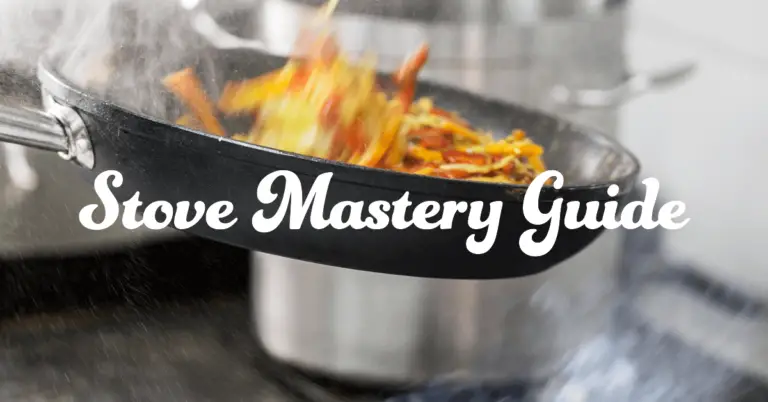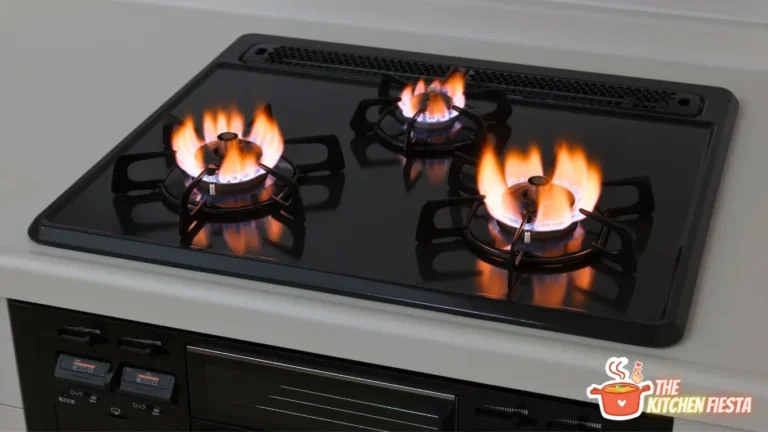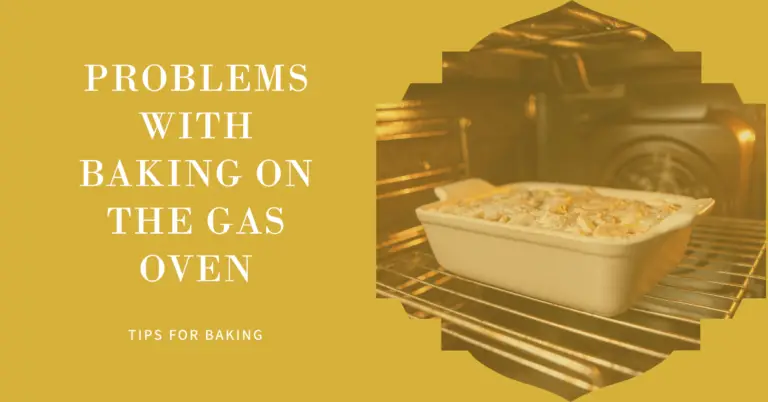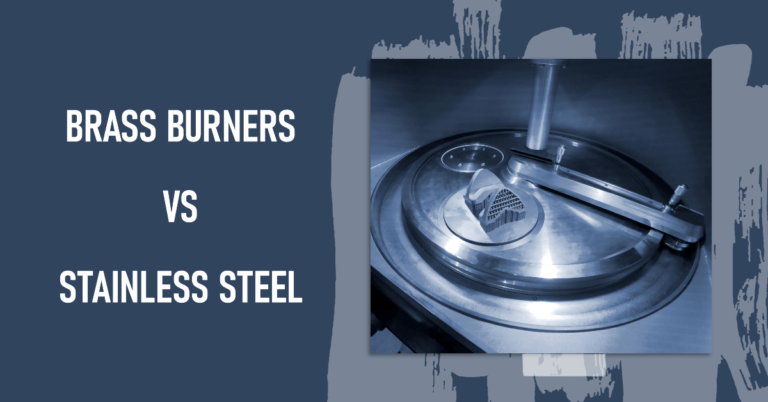Can You Put Stove Grates in the Dishwasher? 97% Don’t Know
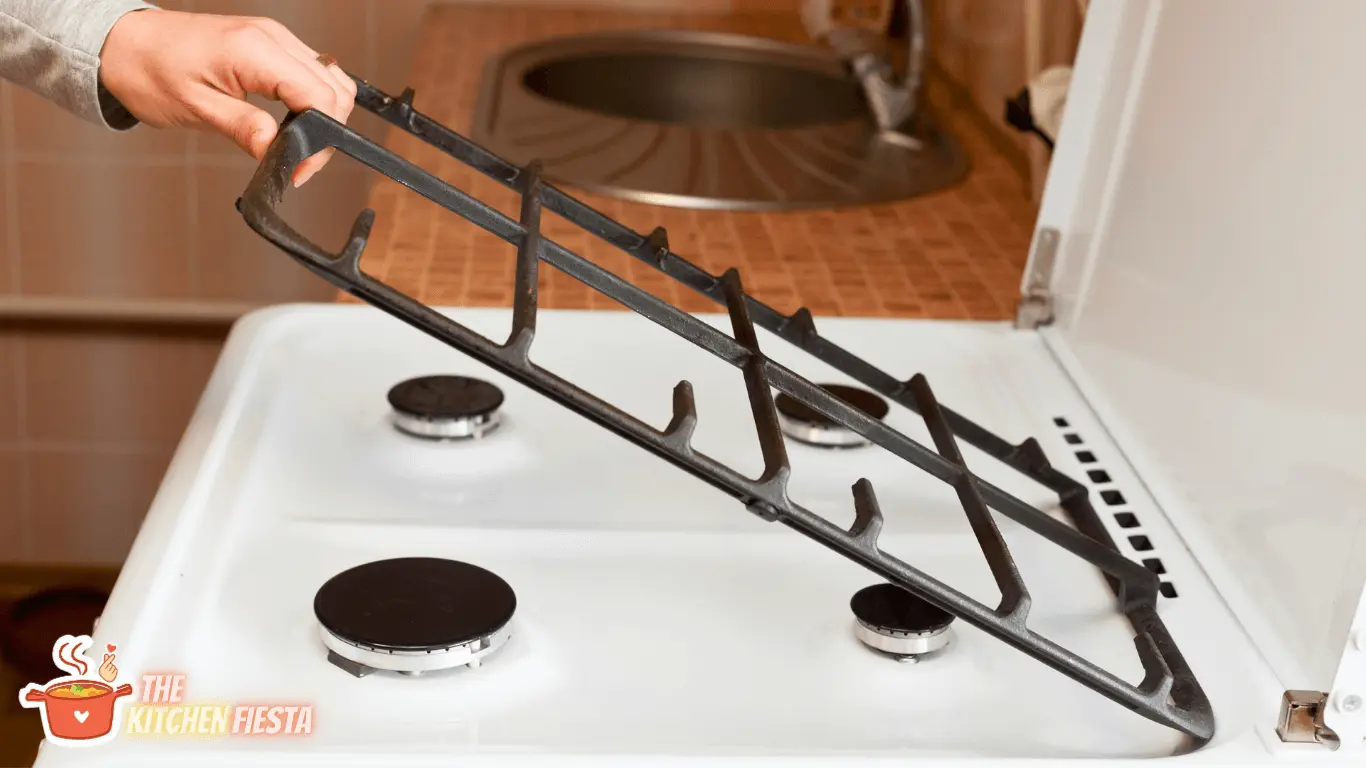
Are you tired of tackling the daunting task of cleaning your stove grates? Many home cooks wonder if there’s an easier way, such as putting the grates in the dishwasher. However, before you take that leap, it’s crucial to understand whether or not it’s safe and effective. The answer isn’t a simple yes or no, as it depends on various factors, including the type of grate and dishwasher you have.
Join us as we explore the ins and outs of cleaning stove grates, including the potential risks and precautions associated with using the dishwasher. Whether you’re dealing with cast iron or enamel-coated grates, this guide will help you make an informed decision and ensure the longevity of your stove grates.
What are Stove Grates?
Stove grates are the metal components on top of your stove burners. They come in different shapes, sizes, and materials, depending on the type and brand of the stove. The primary purpose of stove grates is to support the cookware and distribute heat evenly across the bottom of the pots and pans.
There are three common types of stove grates:
- Cast iron grates: These are the most common type of stove grates. They are made of cast iron, a durable and heat-resistant material. Cast iron grates are known for their ability to retain and distribute heat evenly, making them ideal for cooking. However, they are also heavy and require seasoning to prevent rusting and sticking.
- Porcelain grates: These grates are made of porcelain-coated steel or cast iron. They are lighter than cast iron grates and have a smooth, non-stick surface that is easy to clean. However, they are also more fragile and prone to chipping and cracking.
- Stainless steel grates: These grates are made of durable and corrosion-resistant stainless steel. They are lighter than cast iron grates and do not require seasoning. However, they are also less heat-resistant and may warp or discolor over time.
When cleaning stove grates, it is essential to use the correct method and tools for the grate type. Cast iron grates, for example, should not be cleaned with harsh chemicals or abrasive scrubbers, as this can damage the seasoning and cause rusting. Porcelain grates should not be cleaned with abrasive cleaners or metal brushes, which can scratch the surface and cause chipping. Stainless steel grates can be cleaned with mild soap and water but should not be soaked for long periods, as this can cause discoloration.
Dishwasher and Its Effects
Putting stove grates in the dishwasher is a convenient option, but it is not recommended. The dishwasher’s high heat and harsh chemicals can damage the grates’ enamel, making them prone to rusting and chipping. It may also cause discoloration and reduce the life of the grates.
Cast iron stove, grates should never be put in the dishwasher, as they cannot handle sitting in that much moisture for long. If left in the dishwasher and soaked for too long, they can get rusted, posing risks to health and safety. Drying the stove grates thoroughly after washing is essential to prevent rusting.
Brass stove grates are more durable and can withstand wear and tear better than other materials. They can be washed in the dishwasher if the manufacturer’s instructions allow it. Enamel-coated cast iron stove grates can also be washed in the dishwasher. Still, it is essential to check the manufacturer’s instructions first.
It is important to note that washing stove grates in the dishwasher may not be as effective as cleaning them manually. The thick layer of ash accumulating on stove grates can be challenging to remove with a dishwasher alone. Therefore, cleaning stove grates manually with warm soapy water and a scrub brush is recommended.
Implications of Washing Stove Grates in Dishwasher
When cleaning stove grates, many wonder if they can use their dishwasher. While it may seem like a convenient option, there are some implications to consider before putting stove grates in the dishwasher.
Potential Damage
One of the main concerns with washing stove grates in the dishwasher is the potential for damage. Cast iron grates can be susceptible to rusting if exposed to too much moisture. The dishwasher’s high heat and water pressure can cause the protective coating on the grates to wear off, leaving them vulnerable to rust.
Additionally, the weight and size of stove grates can be too much for some dishwashers to handle. This can cause damage to the dishwasher’s racks and rollers, leading to costly repairs.
Effect on Cleaning Efficiency
While washing stove grates in the dishwasher may seem like a time-saving option, there may be more effective cleaning methods. Dishwashers are designed to clean dishes, glasses, and utensils, not heavy and greasy stove grates. As a result, the grates may not come out as clean as they would with a more targeted cleaning method.
Furthermore, the dishwasher may only be able to reach some of the nooks and crannies of the grates, leaving behind stubborn grease and food particles. This can lead to a buildup of grime over time, making it even more challenging to clean the grates in the future.
Alternative Cleaning Methods
Suppose you prefer to use something other than a dishwasher to clean your stove grates. In that case, there are alternative cleaning methods to consider. In this section, we’ll discuss two popular methods: manual cleaning and using specialized cleaners.
Manual Cleaning
Manual cleaning involves using household items to clean your stove grates. This method is suitable for those who need access to a dishwasher or prefer not to use one. Here’s how to manually clean your stove grates:
- Remove the grates from the stove and place them in a sink or large container.
- Fill the sink or container with hot water and add dish soap.
- Let the grates soak for 15-20 minutes.
- Scrub the grates with a stiff-bristled brush to remove any remaining dirt or debris.
- Rinse the grates with clean water and dry them with a towel.
Using Specialized Cleaners
You can use specialized cleaners if you’re looking for a more convenient and effective cleaning method. Many products on the market are designed to clean stove grates, including sprays, foams, and powders. Here are some steps to follow when using specialized cleaners:
- Remove the grates from the stove and place them in a sink or large container.
- Apply the cleaner according to the manufacturer’s instructions.
- Let the cleaner sit for the recommended amount of time.
- Scrub the grates with a stiff-bristled brush to remove any remaining dirt or debris.
- Rinse the grates with clean water and dry them with a towel.
It’s important to note that some specialized cleaners may contain harsh chemicals that can damage your grates if misused. Always read the label carefully and follow the instructions to avoid damaging your grates.
Manual cleaning and specialized cleaners are effective methods for cleaning stove grates. Choose the best method for you based on your preferences and the materials you have on hand.
Conclusion
In conclusion, putting stove grates in the dishwasher is not recommended. Dishwashers can damage the grates or even the dishwasher itself. Instead, several effective ways exist to clean stove grates without using a dishwasher.
One option is to soak the grates in hot soapy water and scrub them with a scrubbing brush and sponge. Another option is to use baking soda and vinegar to clean the grates. A commercial stove cleaner can also be used to clean the grates.
It is essential to clean stove grates regularly to prevent the buildup of grease and food particles, which can affect the stove’s performance and even pose a fire hazard. Cleaning the grates by hand may take some extra effort, but it is a safer and more effective way to keep the stove grates clean and in good condition.
Overall, following the manufacturer’s instructions for cleaning and maintaining stove grates is essential to ensure their longevity and proper functioning. Caring for the stove grates ensure that the stove remains in good condition and functions properly for years.
Frequently Asked Questions
Are stove grates dishwasher safe?
While it is possible to put stove grates in the dishwasher, it is not recommended as the high heat and harsh chemicals can damage the enamel and reduce the life of the grates. Cast iron grates can rust if washed in the dishwasher frequently.
How do I clean stove grates?
The best way to clean stove grates is to soak them in hot, soapy water for a few hours and then scrub them with a non-abrasive sponge or brush. A mixture of baking soda and water can be used for tougher stains. Rinse the grates thoroughly and dry them before placing them back on the stove.
Can I put electric stove burners in the dishwasher?
Electric stove burners should not be put in the dishwasher as they contain electrical components that can be damaged by moisture. Instead, they should be wiped down with a damp cloth and mild detergent.
What is the best way to clean cast iron grates on a stove?
Cast iron grates should be cleaned with baking soda and water. Scrub the grates with a non-abrasive sponge or brush, rinse them thoroughly, and dry them before placing them back on the stove. It is essential to avoid using harsh chemicals or abrasive materials as they can damage the enamel and cause the grates to rust.
Can you put Kitchenaid stove grates in the dishwasher?
It depends on the model of the Kitchenaid stove and the type of grates it has. Some Kitchenaid stoves have dishwasher-safe grates, while others do not. Check the manufacturer’s instructions or contact their customer service for more information.
How to clean gas stove grates?
Gas stove grates can be cleaned using the same method as other stove grates. Soak them in hot, soapy water, scrub them with a non-abrasive sponge or brush, rinse them thoroughly, and dry them before placing them back on the stove. A mixture of baking soda and water can be used for tougher stains.

